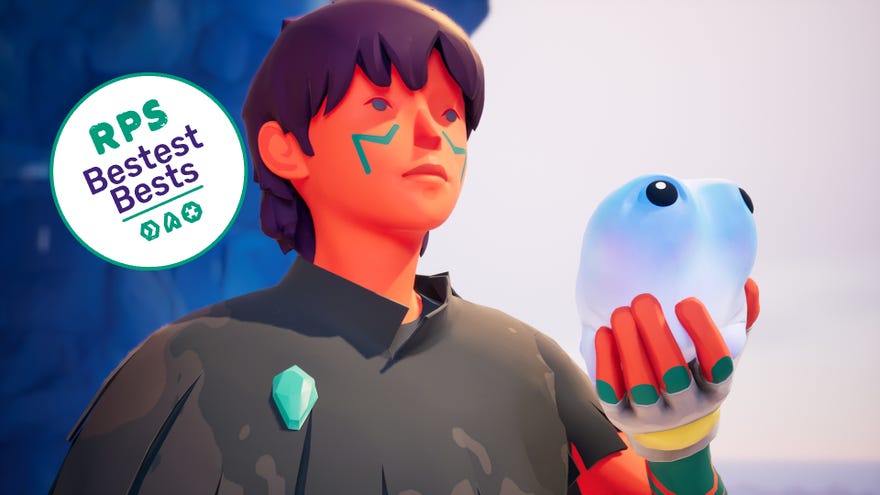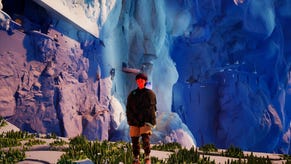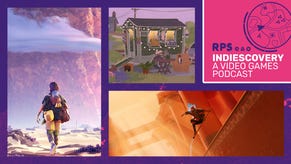Jusant review: a show don't tell masterpiece
Ain't about how fast I get there, ain't about what's waiting on the other side
Jusant is all show, no tell, which is a bold swing. Video game characters aren't often big on show don't tell in 2023. A lot of them have been cursed by their creators to narrate everything they do, as they do it, incase the meatsacks controlling them are unable to parse even one second of what is happening on screen without direction. I love HZD's Aloy, but does she ever just stream-of-consciousness her way through life.
In contrast, the nameless protagonist in Don't Nod's new climbing puzzle adventure (what even are genres?) is also silent. There are no other NPCs. You are climbing up through the ruins of an old civilisation. As such, Jusant relies on the devs having crafted an understandable world that you can barely interact with, aside from painstakingly climbing across it like a spidery archaeologist. You've got to have faith in your environmental storytelling if you're making a game like that. And Don't Nod have nailed it.
To completely describe the story of Jusant would, then, be a disservice to both you and to the developers, but I'll do my spoiler-free best on the basics. You're climbing a huge - a mind-bogglingly massive - pillar of rock, which was itself the home of a civilisation (and, as you climb, you learn the hierachy was literal, with poorer farming communities on the lower levels and grander buildings near the top). You come to understand that the rock once rose out of a great sea, now a desert, which gradually receded; the people here based their lives not just around climbing, but water, too. And at some point that water began to disappear. Onwards you go, towards the top, and with only a small, blue, watery blob and a magic seashell for company, you begin to rehabilitate things.
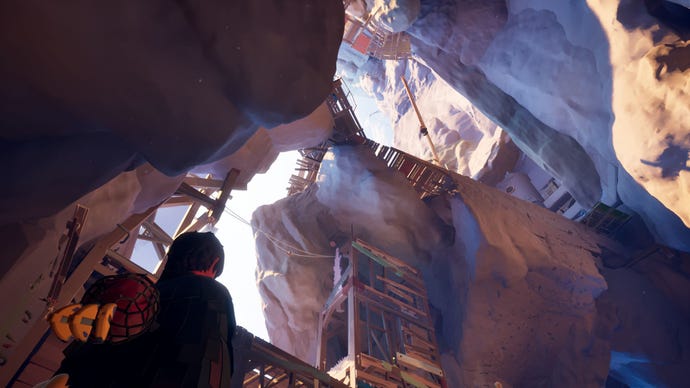
Your interaction with the world is climbing, and though there is, practically speaking, very little jeopardy, it really feels like there is. You have a set length of rope - which colour changes to passively indicate how much slack you have to play with, fading from bright blue - and control each hand in QWOP-lite style. Hold down left or right mouse, or trigger, to maintain that hand's grip; release to release it. So it goes: clamp on to a rock face with your left hand, reach forward and grip with your right, let go on the left and move onto the wooden boards on the left, grip, let go on the right... It's a pleasingly manual process that forces you to stop and think about the moves you're making and fosters a relationship with the wall that you're on - as opposed to something like Assassin's Creed, where you hold down a button to scale buildings like the Terminator.
You're governed by a stamina meter, which you can recharge a little by stopping to rest and shake a hand out. As the game progresses, extra things are thrown in. You can perilously jump to reach distant handholds, your water-blob friend (who, owing to the placement of their eyes, looks unfortunately like a cheerful pair of disembodied boobs quite a lot of the time) can sing to make plants bloom temporary handholds, or grow knobbly vines. As climbs grow into multi-stage affairs you can place waypoints for your rope, to snatch you back from stomach-lurching drops if your grip slips. Jusant's camera is largely focused on you as you crab across an expanse of rock, but once you get to a ledge you can turn to look at just how sucking and empty the fall beneath you is, and you get a bit of a jelly-legs moment.
This holds true the further you climb the spire, although the environment changes as you get higher. Below you're on sun-baked orange cliffs, clamber upwards and you end up in huge internal caverns, full of strange bioluminescence, and then you climb into the teeth of a ferocious gail. You might even reach the snowline, eventually. It keeps the game fresh, and throws in new challenges with each new area, but it also ties in with the environmental storytelling. Though there's no dialogue, you can find secret chambers with glowing murals or spinning sculptures that look a little like prayer wheels, ancient seashells that recorded the sounds of an area, and letters between friends from different points in the spire's history. Like the sand-surfing wonder of Journey, the curious player can spend time just looking at the empty stalls in a stable and wonder what the animals there looked like, can explore a derelict bar, can imagine the ships that passed through subterranean canals. It all contrasts very well with the solid, real feeling you get from the climbing.

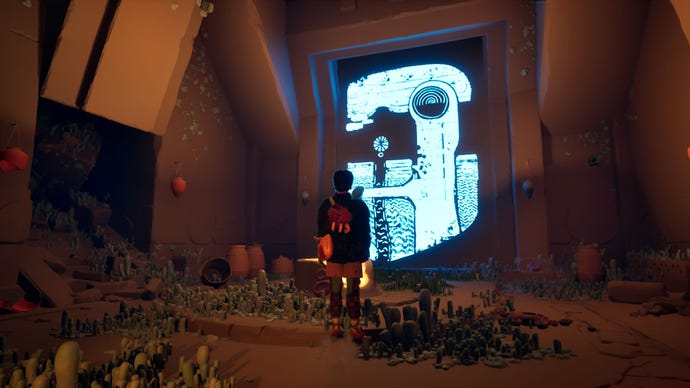
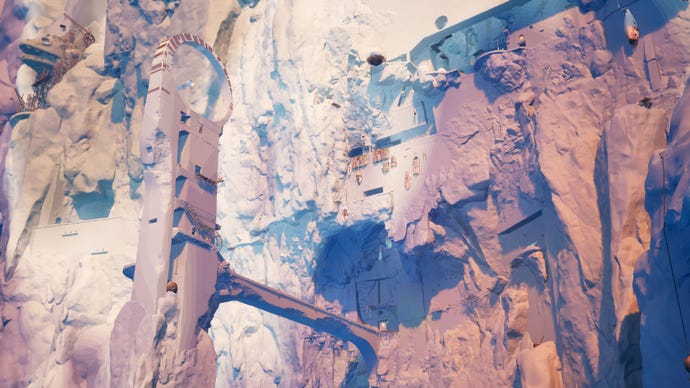
It's excellently done, and if you're the sort of person who can't be arsed with any of that then there's nothing stopping you speed-running your way to the top of the spire - but you'll miss out on potential answers for the whys and the whats that you'll find there. And it's a short enough game anyway - six hours, if you linger - that you might as well have a think about things as you go. Because even if you do play it, you don't know anything for sure. Like an actual archaeologist, you must sometimes make informed guesses, fill in some gaps with gut instinct, and tread carefully.
I do have one complaint because, since Jusant is obviously in many respects a game about environmental collapse, it does irk me a little that the saviour is a stranger with a MacGuffin, and there isn't an answer that involves collective work rather than collective memory. Of course the nature of the game means there is nobody left to help you, but the little nit-picker in me would have liked it if they'd left you half completed solutions more than frustration that they couldn't remember what some of the ancient temples were for. That's quite a mean complaint, when this is otherwise a game that excellently marries form and fuction with world and story. Jusant is a very lovely game that asks you to meet it half way. It's worth the leap.
This review is based on a copy of the game provided by the developers Don't Nod.
